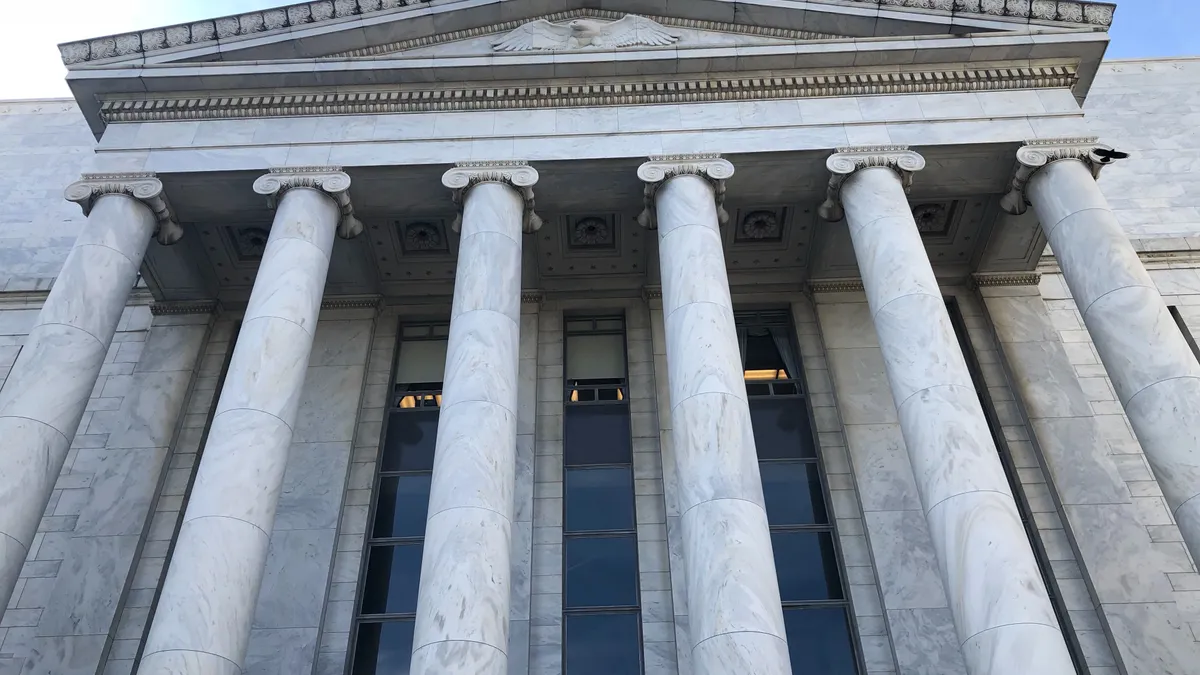Democrats grilled a top bank regulator Wednesday on his plans to reform the Community Reinvestment Act during a three-hour House Financial Services Committee hearing that showed just how divided Democrats and Republicans are when it comes to revamping the 1977 anti-redlining law.
The law, which is meant to curb discrimination against poorer borrowers by requiring banks to meet the credit needs in the areas where they do business, hasn’t been changed since 1995.
The Office of the Comptroller of the Currency (OCC) and the Federal Deposit Insurance Corp. (FDIC) are backing the overhaul, which they say will clarify which activities qualify for CRA credit and create a more objective approach to evaluating CRA performance.
Consumer groups argue the revamp would reduce access to credit for low-income borrowers while making it easier for banks to pass their CRA exams.
Comptroller Joseph Otting, who has spearheaded the revamp, faced challenges from House Democrats who questioned his willingness to cooperate with the committee, while Republicans largely praised his efforts to modernize the CRA and called for civility from their colleagues on the other side of the aisle.
House Financial Services Committee Chairwoman Maxine Waters, D-CA, used her opening statement to call attention to the proposal’s 60-day comment period, a timeline many of the proposal’s opponents have said is too short.
"Such a radical change to the CRA demands a heightened level of public scrutiny. But Comptroller Otting appears determined to push this through as quickly as possible," Waters said. "This is simply unacceptable."
When asked if he would consider a longer, 120-day comment period, Otting said no, adding that the OCC published its proposal Dec. 9, which would bring the comment period to 88 days by the time it ends March 9.
In previous interviews, Otting has maintained the proposal’s comment period is sufficient.
Rep. Gregory Meeks, D-NY, called Otting’s response "completely disrespectful" of the individuals who would be affected and regulated by the legislation.
"I don’t understand what the rush is," he said.
When asked by Rep. Nydia Velázquez, D-NY, whether he would share the data and analysis the OCC used to create the proposal, Otting said the information is not something his agency would put out for public distribution.
"Some of the data comes from the [Federal Financial Institutions Examination Council], which is not public information," Otting said, adding that the data is confidential supervisory information.
Velázquez said the committee should subpoena the information if the OCC won’t share it willingly.
Waters echoed Velásquez’s suggestion, adding, "I don’t think Mr. Otting is serious about his willingness to cooperate with us. … If we have to subpoena the information, we will do that."
Rep. Brad Sherman, D-CA, also cited the proposal’s lack of backing by the Federal Reserve, which he worried would result in regulatory arbitrage.
"If banks don’t like your rule, they can go and get themselves regulated by the Fed, and if they don't like the Fed’s rule they can rearrange their corporate structure to be regulated by you," he said.
Otting, who has said in the past that the OCC and plans to move forward with his CRA proposal with or without the Fed’s backing, said that scenario would be "highly unlikely."
Rep. Katie Porter, D-CA, who is known to bring visual aids to hearings, used labeled buckets to illustrate her questioning of Otting’s comments on why some may or may not support the revamp.
Referring to a December Wall Street Journal article in which Otting said critics of the proposal are either "economically advantaged by the current structure" or "don’t understand it," Porter said, "Basically, you’re either corrupt and on the take or you’re not educated and intelligent enough to digest the OCC’s proposal."
"Which bucket should I put [Fed Gov. Lael Brainard] in?" she asked Otting.
"You will have to make that decision yourself," Otting replied.
In a speech at the Urban Institute in Washington this month, Brainard criticized several aspects of the OCC-FDIC proposal, which includes combining CRA evaluation into a single, final score based in part on dollar value.
Brainard said the Fed’s own blueprint would emphasize the number of loans banks make in low-income areas rather than the dollar value.
Republicans on the committee expressed support for the revamp, as well as their disapproval of the Democrats' questioning of Otting.
"I certainly am disappointed that we allow the integrity of the witness to be questioned," said Rep. Blaine Luetkemeyer, R-MO, adding that he believes he is one of only two members on the panel to have filled out a CRA report. "I've done it many years when I was at the bank at home and I understand that this does need some changes. It does need some reform. ... Thank you for what you're doing."
During his questioning, Rep. Barry Loudermilk, R-GA, also suggested the Democrats’ opposition was politically motivated.
"Had it not been an election year and, quite frankly, who appointed you to this position, you may not have had the vitriol that you have right now," Loudermilk told Otting. "I encourage you to continue going with your patience and perseverance because I think in the long run, everyone will see that those that are afraid of being harmed will actually benefit from your actions."




















